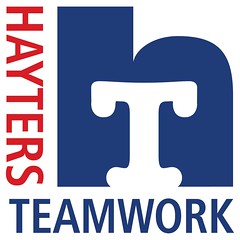 South Africa 2010 is the first truly multimedia World Cup for many sports journalists, according to Gerry Cox, former chairman of the Football Writers’ Association.
South Africa 2010 is the first truly multimedia World Cup for many sports journalists, according to Gerry Cox, former chairman of the Football Writers’ Association.
Cox, who has covered the past four World Cups and runs the renowned Hayters sports reporting agency, knows from experience how much the media world has changed in the past decade.
And as he prepared to cover this year’s tournament in print, video and audio, he predicted that many of his colleagues will find themselves having to work differently from previous years.
‘When I went to USA ’94, reporters were either print, TV or radio journalists. There were no websites as such, and there were clear lines of demarcation.
‘Now it is completely different. The media has merged to such an extent that dyed-in-the-wool newspapermen will be blogging and providing audio-visual content for their websites long before their words go into print.
‘They will be expected to file instantly from press conferences – subject to embargo – and otherwise tweet, blog and give round the clock updates from the events they cover. Newspapers now see themselves as multimedia content producers in the digital age, and expect their staff to provide a lot of that content.”
Hayters crossed the multimedia divide a decade ago, and now regularly films pre-and post-match press conferences from the Premier and Champions League as well as providing the editorial services they have been known for since the 1950s.
‘Hayters has always had great contacts and realised long ago that if we were interviewing some of the biggest names in sport, we could capture that in sound and vision as well as print. We knew we could produce broadcast-quality pictures with lightweight and affordable cameras, and began to re-train our journalists and take on specialists.
‘Now, with newspapers cutting back on their freelance budgets, we find we can keep our relationship going by providing them with video, audio and a newsfeed for their websites as well as copy for their print editions.”
But do not expect all football writers to film, edit and upload video content as well as send copy through. For a start, there are strict limits on what can be done at any ground, especially in a World Cup stadium.
“FIFA accreditation is quite explicit in banning non-rights holders from stadia, so at matches we will concentrate on written work, and do most of our video and audio at England and other press conferences,” added Cox.
And Hayters will not just be interviewing the likes of Wayne Rooney and Fabio Capello.
‘We will be working with newspapers to film their journalists during the tournament, discussing the issues of the day. There will be plenty of other interview opportunities, too, from brand ambassadors, to fans and celebrities. The days when you could simply go along and report on the match are long gone for most of us – fans want round the clock coverage, and that is what we try to accommodate.”
Hayters (www.hayters.com) can be contacted on sport@hayters.com or at 020 8808 3300
Email pged@pressgazette.co.uk to point out mistakes, provide story tips or send in a letter for publication on our "Letters Page" blog
